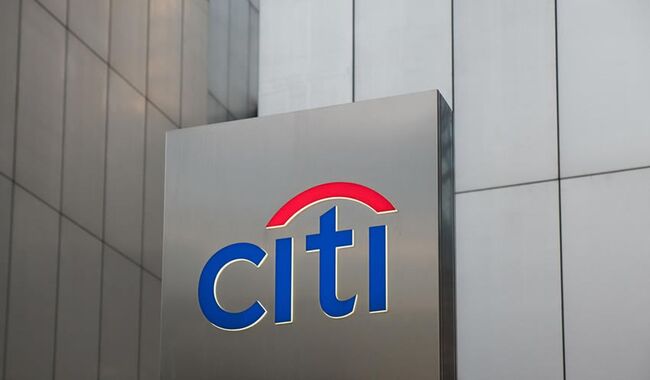Highlights:
- Citigroup eyes custody services for stablecoins and crypto ETFs amid rising demand.
- Citi plans to support stablecoin-backed payments using tokenized U.S. dollar transfers.
- The U.S. GENIUS Act drives Citi’s expansion into regulated digital asset custody.
U.S. banking giant Citigroup is eyeing custody services for stablecoins and crypto ETFs as U.S. regulations turn favorable. The bank has its vision directed into the digital asset space, which is rapidly expanding. This comes after regulatory clarity has grown under new federal laws, particularly the GENIUS Act.
The GENIUS Act, which was signed into law in July, mandates that the issuers of stablecoins maintain secure reserves. These have to be U.S. Treasuries or cash. The regulation offers traditional custodians, such as Citigroup, a new role in digital finance. Citi’s services division, headed by Biswarup Chatterjee, is already working on the initiative. Chatterjee told Reuters that, “The first option we are considering is to provide custody to those high-quality assets that back stablecoins.”
According to Reuters, Citigroup is considering offering custody and payment services for stablecoins and crypto ETFs. Its first focus is providing custody for high-quality assets backing stablecoins, while also exploring custody of digital assets supporting products such as…
— Wu Blockchain (@WuBlockchain) August 14, 2025
Citigroup, which controls a total of more than $2.57 trillion in assets under custody, aims to directly challenge crypto-native custodians. Currently, Coinbase has a stronghold in the ETF custody business, with more than 80% of U.S. crypto ETF issuers using its services.
Stablecoin Regulation Spurs Traditional Bank Involvement
Citigroup is currently assessing ways to support custody of digital assets associated with ETFs. These funds consist of Bitcoin and Ether-based funds, which have now become highly demanded since their legalization in 2024. ETF issuers are required to hold the equivalent crypto assets securely, prompting Citi’s involvement.
Institutional opportunities are also presented by the expanding stablecoin market, which amounts to more than $280 billion today. A large part of this value continues to circulate in blockchain-based systems, but leading banks are eager to alter this.
Citi intends to use stablecoins to accelerate cross-border settlements and transactions. 24/7 tokenized transfers of the U.S. dollar are already supported by its services arm. These run between accounts in places such as New York, London, and Hong Kong. Moreover, the bank is creating new tools that will permit customers to transfer or convert stablecoins into fiat. These are efforts to facilitate instant settlement and cross-border liquidity.
Furthermore, regulators have shifted to supporting traditional banks in the digital asset market. Already having anti-money laundering systems and compliance procedures, Citi will be able to provide institutional-grade custody.
ETF Growth and Tokenized Payments Drive Citi’s Crypto Plans
Citigroup views custody services as a source of revenue apart from being essential infrastructure for tokenized finance. Chatterjee pointed out that “ETF products required for compliance must possess equivalent digital assets to keep custody.” Consequently, this raises the need for experienced banks in safekeeping.
While there is discussion about Citi creating its own stablecoin, the current initiative is more on the infrastructural side. The focus is to develop reliable custody, payment, and settlement services. The payments division of Citi has already been integrated with blockchain to allow instant transactions.
*CITI CEO JANE FRASER: CITIGROUP IS EXPLORING ISSUING A STABLECOIN$C pic.twitter.com/790Ob0UZ3Y
— Investing.com (@Investingcom) July 15, 2025
The shift represents a larger move across Wall Street. Citi is one of the banks, including JPMorgan and Bank of America, that are reportedly exploring the possibility of forming a joint stablecoin. Citi, working in more than 160 countries and serving 200 million clients, might provide it an advantage.
Meanwhile, major U.S. banking groups are urging Congress to remove a loophole in the stablecoin provisions of the GENIUS Act. They cautioned that affiliates could continue to provide yields, risking substantial outflows of deposits. In addition, the Treasury projections indicate a possible loss of $6.6 trillion. These shifts might restrict lending, increase the cost of borrowing, and strain banks under market stress.
Best Crypto Exchange
- Over 90 top cryptos to trade
- Regulated by top-tier entities
- User-friendly trading app
- 30+ million users
eToro is a multi-asset investment platform. The value of your investments may go up or down. Your capital is at risk. Don’t invest unless you’re prepared to lose all the money you invest. This is a high-risk investment, and you should not expect to be protected if something goes wrong.






